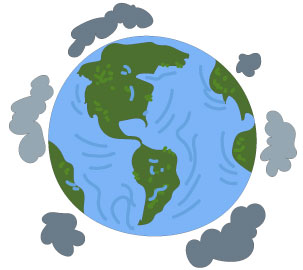- Earth System
The Earth System Thinking
Earth system thinking is the science that utilizes habits, tools, and concepts to understand how complex things work. It breaks apart all the components of a larger whole and carefully studies how each bit works and how it interacts with other bits of the whole.
Systems thinking makes it possible for us to make sense of complex things and helps us to interact with that system in a healthier way.
 Earth system science (ESS), therefore, is the study of all the connections and interactions of the atmosphere, biosphere, hydrosphere, and geosphere.
Earth system science (ESS), therefore, is the study of all the connections and interactions of the atmosphere, biosphere, hydrosphere, and geosphere.
ESS helps us to predict undesirable consequences and do something to mitigate it.
As young scientists, it is important that studies and observations, no matter how small, are properly documented because of changes in the way the earth works can take place over millions of years. Changes can also take place in just a couple of seconds. Earth system scientists bring together data and findings from geology, oceanography, ecology, meteorology, atmospheric chemistry, and others to study and draw observations and predictions.
The advancement in technology, satellites, and modeling has provided the best conditions for ESS to take off.
The historic behavior of the earth is therefore of immense value to earth systems thinking. Change in the planet occurs at different rates and in different places over time. The energy from the sun and energy from within the earth itself drives this change.
Human understanding of the earth is not complete. We are constantly finding new evidence and formulating new theories about our planet. Your role is to read and study information from sources that your countries Earth Science Departments, and have a better undertaking of it so that you can make your own research and discover something to add to the knowledge bank.
